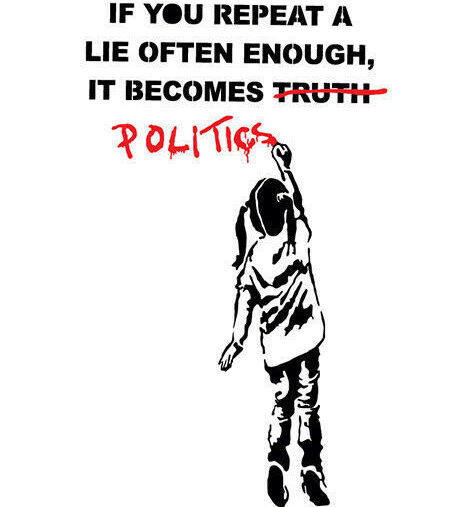What do we mean when we speak of Truth and Politics? Why should Truth matter in a liberal democracy? How can Truth not matter in a liberal democracy? Not very long ago, these questions would have seemed odd, even absurd. Yet, we currently live in a world in which Truth is up for grabs and people’s feelings seem more important than scientific knowledge and facts. We also live in a world in which liberal democracy is in crisis. Politicians act as though staying in power is more important than serving the public good. It’s no surprise that citizens no longer trust their leaders and are susceptible to manipulation by demagogues.

In this seminar, we will consider numerous aspects of the uneasy relationship between Truth and Politics in our troubled times. As you will see, I have a broad conception of these twin concepts. It is based upon the idea that Truth-telling and Truth-living are essential components of a flourishing liberal democratic polity. By Truth, I mean the obligation of politicians to seek “the whole truth,” and not just pick and choose elements that serve their personal interests. By Politics, I mean the noble activity in which citizens collaborate in pursuit of a common good.
I have divided our seminar into four parts. In the first part, we will lay the foundations for our investigation by reflecting on the works of great political thinkers. In the second, we will examine multiple manifestations of the current crisis over the role of Truth in political life. In the third, we will consider what can be done to restore the good health of our democratic system. Finally, we will conclude our seminar by asking what it means for each of us to “live within the truth.” All Notre Dame students should ask this question and do their best to live up to its demanding standards. You have already won the Ovarian Lottery and you are studying at a Catholic university that seeks to pursue the ultimate Truth. To paraphrase an eighteenth century wit whom we will soon encounter, Dare to act accordingly!
Our seminar comes at a unique time in modern history. The immediacy of the global Coronavirus pandemic has given you, like it or not, an “epistemic opportunity” to reflect upon the human condition in ways that have been unavailable to generations of Notre Dame students for at least the last half century. At the same time, the coming elections in November will challenge you to reflect on the role of the democratic citizen. Indeed, this may be your first opportunity to vote—the ultimate responsibility of the citizen.
For all of these reasons, I expect that our topics and discussions will evolve with the ebb and flow of changing circumstances. The advantage of a web-based Syllabus, the format I use for all of my courses, is that I can modify it as we move along. On the syllabus, WATCH
NOTE: Please leave your technology at home. This includes electronic devices of any kind, such as laptops, Kindles, i-Pads, I-phones, video cameras, video games, trap-and-trace devices, and other personal digital technology.
My class is a no-tweet zone. Some behavior is just not dignified!
The photos on the headers of this Syllabus were all taken by my friend, Fr. Slawomir Nowosad, a professor of theology at the John Paul II Catholic University of Lublin, Poland
